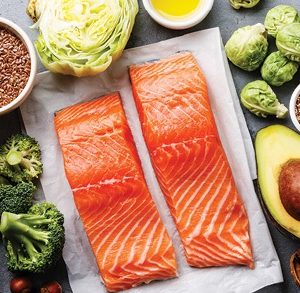May 31, 2020

Due to necessary lifestyle requirements resulting from ever-changing health and safety guidelines, many people across the country are having to deal with significant anxiety. Anxiety is a normal reaction to change and stress, but when anxiety becomes excessive or irrational, it can become disabling. At this time, people often turn to food for comfort, causing them either to overeat, neglect to eat, or make poor food choices.
Although food can’t cure an anxiety disorder, studies have shown that a healthy diet may lessen the signs and symptoms of anxiety. Always check with your physician first, but consider the following dietary suggestions:
Incorporate complex carbohydrates into your diet. These foods increase the amount of serotonin, a calming transmitter in the brain. Potatoes, whole wheat bread/pasta, and oatmeal take longer to digest than simple carbs found in soft drinks or many baked goods.
Skip or reduce alcohol. Many people reach for a drink to calm themselves, but overindulgence may lead to insomnia and dehydration.
Stay hydrated. Be sure to drink sufficient water and non-caffeinated liquids. Dehydration may lead to fatigue, headaches and stress.
Avoid or limit caffeine. It is present in many soft drinks (not just colas) as well as tea and coffee. Caffeine may speed up heart rate and disrupt sleep.
Eat a well-balanced diet of fruits, vegetables, high-fiber starchy foods, dairy or dairy alternatives, and protein that provide vitamins and minerals.
Ask your physician if additional mineral supplements or multi-vitamins are needed. These may be key to unlocking the energy in food and help manufacture serotonin in the brain, which has also been known to reduce stress and anxiety.
